When a head of state flies in for a state visit, it’s traditional for the Foreign Secretary to lead the welcoming committee. When Donald Trump landed at Stansted airport in Air Force One, Jeremy Hunt was left waiting on the tarmac for a while. Hunt assumed that a tired Trump was ‘probably just powdering his nose’ after a long flight. It transpired, however, that the Commander-in-Chief was busy tweeting his denunciations of Sadiq Khan, the mayor of London (‘a stone-cold loser’) — thereby setting the news agenda for the day.
‘I found out almost in real time because the President told me about his tweets,’ the Foreign Secretary says, when we meet the day after. ‘I do think we have to learn from his ability to communicate,’ he adds. ‘This is the first president in history who arrives to work and the whole world knows what he’s thinking.’
But is that necessarily a good thing? ‘This is someone who puts enormous effort into communication. It’s authentic. I don’t think he wakes up thinking: how can I grab the headlines today? I think he is expressing what he genuinely feels. He touched down and was genuinely angry about Sadiq Khan — and expressed it.’ For Hunt’s part, he told Trump: ‘We are going to put on a great welcome for you because you’re our best friend.’
The charm offensive worked. After the interview, Trump took time in his press conference to declare that the Foreign Secretary would ‘do a very good job’ if he were to become prime minister. It’s a sentiment with which Hunt agrees. Sitting in his official residence, opposite a portrait of Castlereagh, he makes his case: he’s an experienced politician for serious times. ‘This is a moment in our national destiny where we should not turn our nose up at experience,’ he says. ‘We’ve got to get things right. Get things wrong, and within six months we could have Corbyn in Downing Street — and no Brexit.’
Or worse. ‘We have a more aggressive Russia. A more autocratic China. In some ways, we are going back to a situation much closer to the 1980s where we can’t take for granted western values.’ His pitch? To make Britain stand tall again, and increase defence spending. But as Trump was at pains to point out on his visit, the US likes allies it can trust, and it’s not sure it can trust countries who do business with Huawei, the Chinese tech giant bidding for Britain’s 5G network. Would Hunt be prepared to confront Beijing?
‘America is our strongest ally, will always remain our strongest ally,’ he says firmly. His concerns about China go far beyond the question of Huawei and 5G. There is, he says, a ‘strategic question’ as to whether Britain should be giving Beijing such business at all. ‘China has an industrial strategy which they are quite open about: “Made In China 2025”. They want to have 80 per cent market share of telecoms equipment, a 90 per cent market share of artificial intelligence. You have to ask whether it is wise for any of us to become technologically dependent on a third country for those kinds of technologies, given how important they are going to be.’
If he sounds hawkish on China, it’s not because of his Chinese wife but to do with his upbringing as the son of a Royal Navy commander. ‘I grew up in the 1980s in a naval family and with a father who spent his life doing exercises preparing for possible war with the Soviet Union,’ he says. ‘I just think that the best way to defend yourself is through strength — and we have to recognise when there is a potential threat to our values. In the case of China, I think it’s at a crossroads — but we have to prepare for these scenarios.’
Hunt’s CV reads like a model Tory application: head boy at Charterhouse and PPE at Oxford before becoming a successful entrepreneur. ‘I could have gone for a comfortable job in a consultancy in the City,’ he says. ‘But I started out on my own, building a business from scratch that ended up employing 200 people.’ In 2005, he won South-West Surrey from the Liberal Democrats. ‘I’d be the first prime minister in modern times who’s won a marginal seat. We are going to need to win a lot of marginal seats if we’re going to win the next general election.’ Since then, he has served nine years in the cabinet where he became the longest-serving secretary of state for health.
Hunt wants to take inspiration from the time he has spent running start-ups. ‘I will be the first prime minister to have been an entrepreneur by background. Building a business is in my blood,’ he says. He thinks that one measure of whether Brexit has been good for the country will be if the UK economy grows faster than the eurozone. ‘Then people will say Brexit has been a success.’
He would also draw inspiration from America, and its tax cuts. ‘Instead of fashionably deriding Trump, we should actually look at the fact that America’s GDP growth is double ours,’ he says. He wants a ‘very aggressive programme of business tax cuts’ .
He’d start by cutting corporation tax to Irish levels — down to 12.5 per cent from today’s 19 per cent. Then he’d increase the annual investment allowance from £1 million to £5 million ‘to promote investment, deal with our productivity gap’. He would also like to cut business rates. And how to pay for these pledges? ‘Look at the headroom that we now have in the economy, the £26 billion that we know the Treasury has now, which is keeping a business war chest for a no deal,’ he says. ‘Well, my argument is that you don’t wait for no deal. Use it right away. The best thing that you can do is to fire up the economy! Turbo-charge it so that, whatever challenges we face, our businesses are really motoring.’
Would no deal even be a possibility under a Prime Minister Hunt? He garnered criticism from Tory colleagues last week with an op-ed declaring it would be ‘political suicide’ for the Tories. He’s confident that he can negotiate a better deal from the EU, but what would happen if we were a few weeks away from the 31 October deadline and the EU still refused to enter discussions? ‘If there were no prospect of a better deal, I would — as I have said — be prepared to go for no deal,’ he says. ‘In the end, I’ve always thought the democratic risk of no Brexit is more dangerous than the economic risk of no deal.’
His detractors — every leadership candidate has plenty at this stage — say that he is another safety-first choice who would bore voters and be eaten alive in Brussels. What does he think of those colleagues who call him ‘Theresa in Trousers’? He does his best to smile. ‘Don’t confuse continuity for loyalty,’ he warns. ‘I have served two prime ministers completely loyally over the last nine years, but I would be quite different to both.’
Would voters view him as another Tory toff? ‘Well, all I would say is I have spent my life with people underestimating me,’ he replies. ‘In nine years I’ve done some of the most difficult jobs in government. I’ve faced down our most challenging union, the doctors’ union, a strike that lasted almost as long as the miners’ strike, I was responsible for the London Olympics with all the challenges that involved. I don’t think you can say I haven’t been tested in government.’
Brexit has cost the last two prime ministers their jobs. Hunt served under both of them. But when I put it to him that the EU might fancy its chances against a third British PM, he replies, ‘They might have a go. But I like to prove people wrong.’
Got something to add? Join the discussion and comment below.
Get 10 issues for just $10
Subscribe to The Spectator Australia today for the next 10 magazine issues, plus full online access, for just $10.
You might disagree with half of it, but you’ll enjoy reading all of it. Try your first month for free, then just $2 a week for the remainder of your first year.


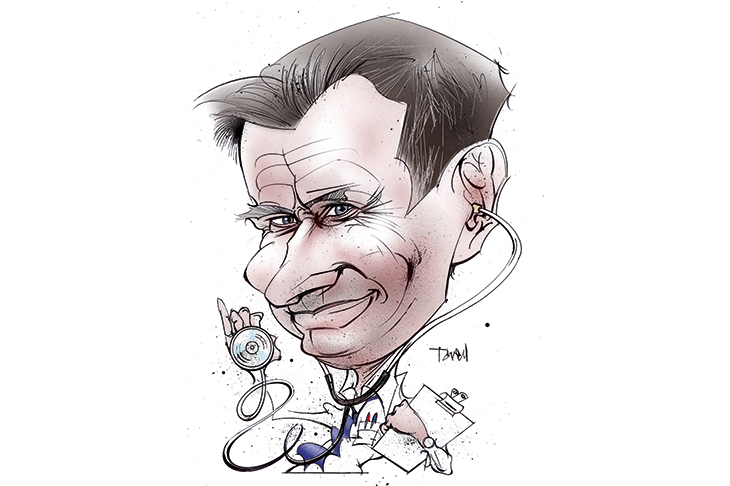
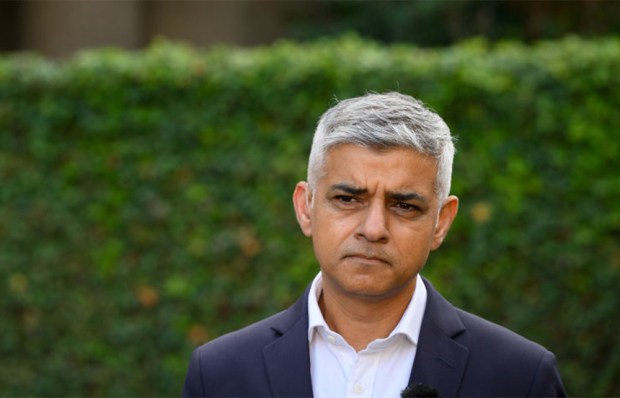
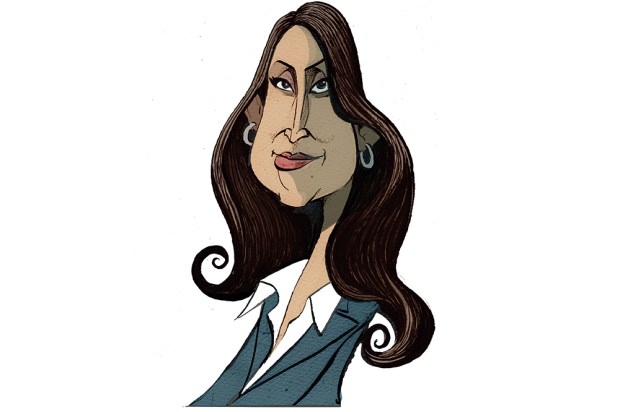
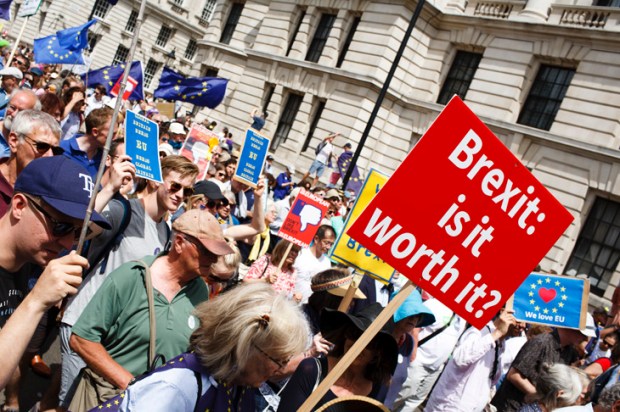
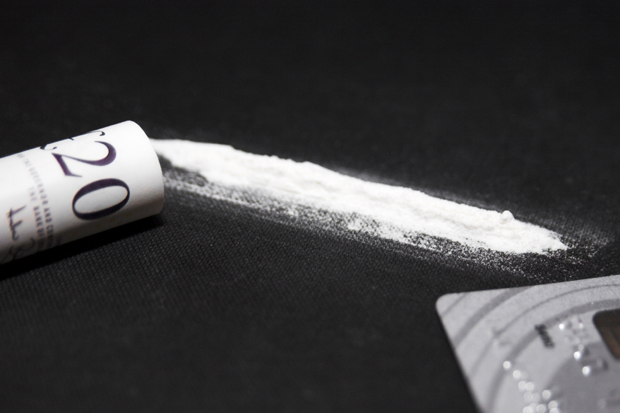








Comments
Don't miss out
Join the conversation with other Spectator Australia readers. Subscribe to leave a comment.
SUBSCRIBEAlready a subscriber? Log in